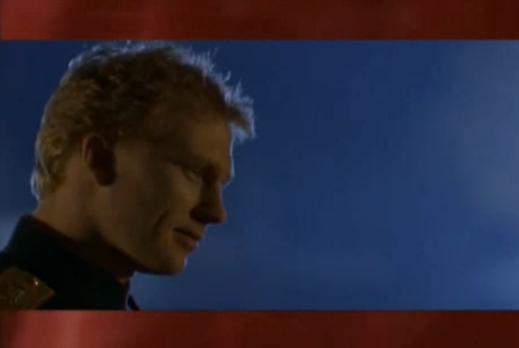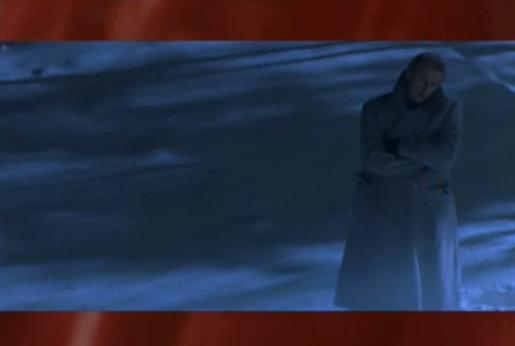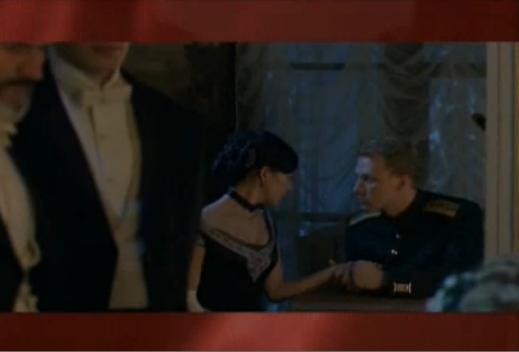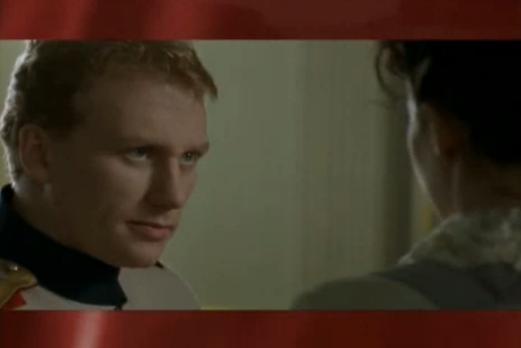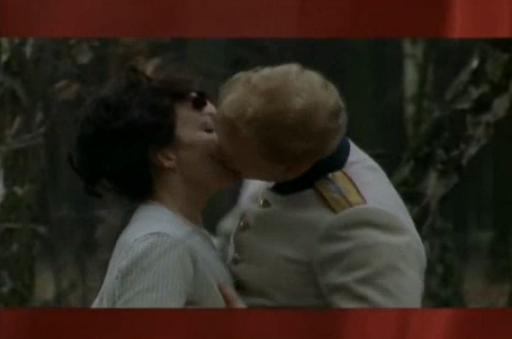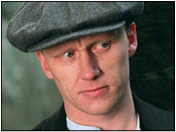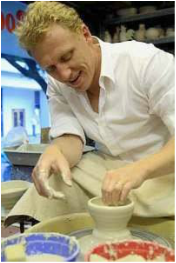Anna Karenina
2000
Starring: Helen McCrory, Kevin Mckidd
Review by Ruralstar
4 hours running time
NB This review contains Spoilers
From Wikipedia: Anna Karenina is a novel by the Russian writer Leo
Tolstoy, published in serial installments from 1873 to 1877 in the periodical
The Russian Messenger. Tolstoy clashed with its editor Mikhail Katkov
over political issues that arose in the final installment (Tolstoy's unpopular
views of volunteers going to Serbia); therefore, the novel's first complete
appearance was in book form.
There have been many incarnations of this story produced since its
publication. The earliest I discovered was an adaption by the French
playwright Edmond Guiraud for the theater dated 1907. Movies and
television versions date from 1914. I write this review never having read
the book or seen any adaptation except the one starring Kevin McKidd.
Wrapped up in the complicated tangle of Russian politics and society Anna
Karenina is a classic melodrama of high romance and tragedy. Anna is a
product of her environment. A prisoner of the very society that brought
her notice and status. She ultimately falls victim to her own personal
weaknesses and the manipulations of the powerful, passionate men who
dominate her life. The central plot point is Anna’s doomed romance with
Alexie Vronsky. However, the lives and loves of familial and societal
connections give the story a greater depth and illustrate to the viewer, at
least in part, why Anna and Alexie can never be.
(click read more to continue)
American viewer I got the sense that it could have been set anywhere in
Europe at the latter half of the 19th century, and not in Russia specifically.
The setting is important to help drive home the extremely rigid and
conservative world Anna lived in. The exception to this issue is the stark,
barren world of Konstantin. The viewer truly gets a sense of the harshness
of the Russian winter and the hardships of the poor in contrast to the very
rich when immersed in his story.
I enjoyed the secondary plot of Ekaterina, or Kitty, and Konstantin as much
as Anna and Alexie. The Kitty character evolved from little more than a
diversion for bored, flirtatious Vronsky to a mature woman who could handle
even the challenge of Konstantin's complicated past and family. The movie
does not explore exactly who Konstantin was before their marriage. His
diaries imply recklessness and womanizing. His brother Nikolai states that
Kitty is a child and will never be a true match for Konstantin. Still, their
feelings persist and the viewer is rewarded when they discover a true love
that is ultimately stronger than Vronsky and Anna's for all of the latter pair's
passion.
Stiva, Anna’s brother, and Dolly were another interesting pair. I couldn't
dislike Stiva even though he was unfaithful to Dolly for years. He was a well-
meaning cad whose friends and wife actually meant the world to him. By the
end the viewer realizes that Stiva has learned a lesson from Anna's death.
He sees what really matters and you can imagine he will be faithful to Dolly
for the rest of their days.
As to the central triangle of the story: it would be easy to hate Alexie
Karenin for not granting Anna a divorce, but by the end of the film I pitied
him. His 'friend' Countess Lydia used God and the church to manipulate him
into a living arrangement that actually suited her needs and not his. You
never find out what happened to the son Anna and Alexie shared. Instead
we see a broken man with Lydia fawning all over him. Sad. In his own
stilted way Karenin loved Anna or he would never have overlooked her
behavior towards Alexei for as long as he did. Nor would he have allowed
the younger man to see Anna during her nearly fatal delivery of their
daughter.
And then there is Anna and Alexie. She is a tragic heroine who is ultimately
too weak to deal with the crisis she's helped to create. From the perspective
of modern western society it is easy to hate her because in the end she
drives Alexie away with her paranoia and unfounded fears. He loves her
unconditionally from the moment they meet. Losing her is his downfall in
every way. The viewer gets to see his loyalty when he loses his temper at
the party and defends Anna's place in society. We see his pain when she
nearly dies in child birth, when he tries to assuage her fears and at the end
when he rejoins the service longing for death. Anna’s juvenile 'love test'
of the headache would make most modern women want to tear their hair
out by the roots. But it is a plot device that ultimately proves how far gone
Anna is by that point in the story. She was right when she told Alexie that
his indiscretions would be overlooked by society because of his gender.
After a certain point Anna is too far into her affair to ever turn things around
and return to Karenin, assuming she would even want to. As for Alexie: his
pursuit of Anna comes off as almost stalker-like at first glance. As the movie
progresses however it's obvious that she wanted that pursuit from the start.
She's not happy in her marriage but I don't think it's really Karenin's fault.
She seems a bit spoiled and self-absorbed. One could say the same about
Alexie Vronsky but in the end he proves how much he was willing to give up-
his very life-for Anna.
There is not a lot of attention paid to Alexie Vronsky’s background. Clearly
he feels controlled and manipulated by a mother who has learned how to
twist society to her advantage. She is a powerful woman even within the
limitations of Russian society. She professes love but she comes off as
cold and unfeeling. The polar opposite of her passionate son and his lover.
Since we never meet Alexei’s father the viewer is left to wonder at Alexei’s
motivations beyond the obvious need to rebel and find an identity separate
from the expectations of society and his mother.
The storylines of Anna/Alexie and Kitty/Konstantin are loosely connected
through familial ties. The connection is thin enough in this adaptation
that the story seems a bit disjointed. Perhaps Tolstoy dealt with these
discrepancies better in the book. According to the official website for the
film, the producer exaggerated Vronsky's suicide attempt. He wanted the
viewer to feel more of his despair at the idea that Anna would not survive
the birth of their daughter and that she would not go to him even if she did.
He succeeded to some degree. As a minor confusion we are never really
sure what drug helps drive Anna over the edge. According to my reading
it is morphine, quite common and readily available almost anywhere in the
world at that time.
In terms of casting, I thought Kevin McKidd was well cast as Vronsky and
while I was not familiar with the rest of the actors I thought they seemed
comfortable in their roles. I liked Helen McCrory opposite Kevin on North
Square. Her Rose was full of fire and purpose. Anna was a bit too pathetic
for her to play. I thought the actress was floundering as much as the
character after Anna left Karenin and moved to Italy with Vronsky. Kevin
seemed to find a new level of passion and plausibility as Vronsky struggles
to make Anna happy and to deal with the conventions of society that make
their life impossible. I expected a bit more overt emotion at the train station
when he tells Konstantin that he has rejoined the service and wants to die.
It is possible that the director wanted a more restrained, empty Alexie for
his final scene. Kevin certainly delivered if that is the case.
Overall the film is a solid example of its genre but not something I would
recommend for a little light viewing. Bring your tissue box.
Thank you to Ruralstar for the above review
Screencaps are our own
